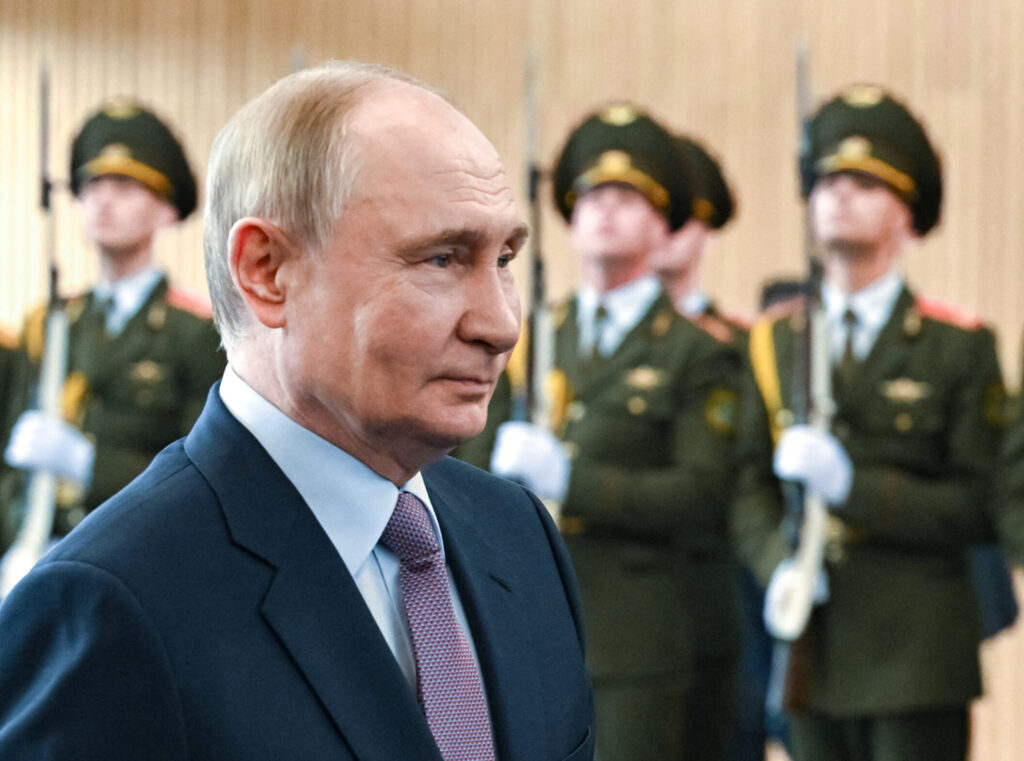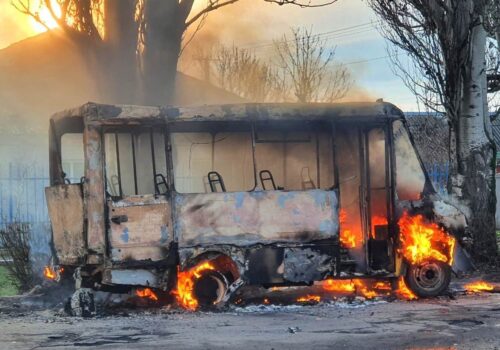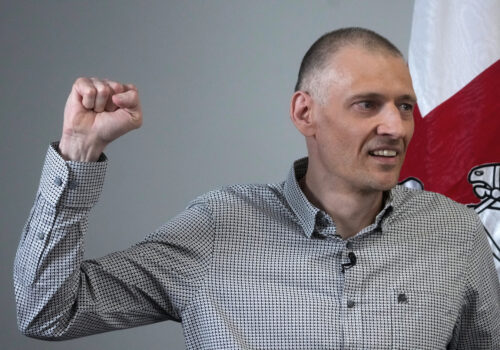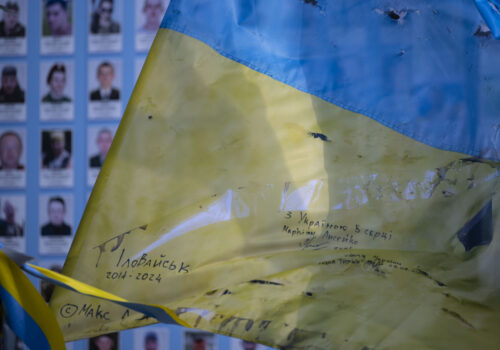Russian president Vladimir Putin will not attend next week’s annual BRICS summit in Brazil due to concerns over an International Criminal Court warrant for his arrest in connection with alleged war crimes committed in Ukraine, Kremlin aide Yuri Ushakov has confirmed. “This is due to certain difficulties in the context of the ICC requirement,” Ushakov commented. “In that context, the Brazilian government could not take a clear position that would allow our president to participate in this meeting.” Instead, the Russian leader is expected to join his BRICS colleagues via video link.
Putin has officially been a war crimes suspect since the ICC named him in a March 2023 arrest warrant over to the mass deportation of Ukrainian children. Russia stands accused of abducting and deporting tens of thousands of Ukrainian children, with many victims reportedly subjected to ideological indoctrination to rob them of their Ukrainian heritage and impose a Russian national identity. These mass abductions may qualify as genocide according to the 1948 United Nations Genocide Convention, which identifies “forcibly transferring children of the group to another group” as one of five internationally recognized acts of genocide.
As a signatory to the Rome Statute that established the ICC, Brazil would be obliged to arrest Putin if he entered the country. Addressing the ICC warrant in 2023, Brazilian President Luiz Inácio Lula da Silva initially dismissed talk of detaining the Russian president, before backtracking and distancing himself from the issue. “If Putin decides to go to Brazil, it’s the justice system that will take the decision over whether he should be arrested, not the government or congress,” Lula stated.
Putin faced similar uncertainty two years ago ahead of the annual gathering of BRICS leaders, which was then being hosted by South Africa. The South African authorities reportedly came under considerable pressure from their Russian colleagues to provide assurances that the Kremlin dictator could travel to the August 2023 event without fear of arrest. “Russia has made it clear that arresting its sitting president would be a declaration of war,” commented South African President Cyril Ramaphosa in the build-up to the summit. The Africans were ultimately unable to offer any guarantees, forcing Putin to abandon his plans to attend.
Stay updated
As the world watches the Russian invasion of Ukraine unfold, UkraineAlert delivers the best Atlantic Council expert insight and analysis on Ukraine twice a week directly to your inbox.
In addition to Putin, the ICC has also issued arrest warrants for a number of senior Russian officials since the onset of Russia’s full-scale invasion of Ukraine. In 2024, the court announced charges against former Russian Defense Minister Sergei Shoigu, Russian army chief Valeriy Gerasimov, Russian Air Force long range aviation chief Sergei Kobylash, and Russian Black Sea Fleet commander Viktor Sokolov in connection with the deliberate targeting of Ukrainian civilians and the bombing of Ukraine’s civilian power grid.
While these charges have been welcomed in Ukraine and elsewhere as a step toward justice, there is currently thought to be little prospect that any of the named Russian war crimes suspects will be forced to appear in The Hague. Instead, the ICC arrest warrants serve primarily as an inconvenience and a reminder that efforts are underway to hold high-ranking Russian officials accountable for crimes committed during the invasion of Ukraine.
Eurasia Center events

While the wheels of justice continue to turn slowly at the International Criminal Court in The Hague, Kyiv is also pursuing alternative formats to prosecute Kremlin officials for the invasion of Ukraine. Ukrainian President Volodymyr Zelenskyy signed an agreement on June 25 with the Strasbourg-based Council of Europe, the continent’s leading human rights body, to establish a special tribunal that will charge Russia’s national leaders with the crime of aggression.
Once operational, this special tribunal could theoretically put senior Russian figures including Putin on trial, but this will require a boldness that has often been absent from Europe’s response to Russia’s invasion of Ukraine. “It will take strong political and legal courage to make sure every Russian war criminal faces justice, including Putin,” Zelenskyy noted in Strasbourg.
Despite mountains of evidence supporting allegations of Russian war crimes in Ukraine, it may still be many years before Putin or any other senior Kremlin officials face even symbolic justice. This has left Ukrainians feeling understandably frustrated and deeply disillusioned. They will take little comfort from the fact that Vladimir Putin is now unable to travel internationally without first considering whether he risks being arrested for war crimes. Nevertheless, the Kremlin ruler’s inability to attend flagship events like next week’s BRICS summit in Brazil is a personal embarrassment for Putin and a significant blow to Russia’s international prestige.
Peter Dickinson is editor of the Atlantic Council’s UkraineAlert service.
Further reading
The views expressed in UkraineAlert are solely those of the authors and do not necessarily reflect the views of the Atlantic Council, its staff, or its supporters.

The Eurasia Center’s mission is to enhance transatlantic cooperation in promoting stability, democratic values, and prosperity in Eurasia, from Eastern Europe and Turkey in the West to the Caucasus, Russia, and Central Asia in the East.
Follow us on social media
and support our work
Image: Russian President Vladimir Putin attends the Eurasian Economic Forum in Minsk, Belarus. June 26, 2025. (Sputnik/Sergey Bobylev/Pool via REUTERS)





